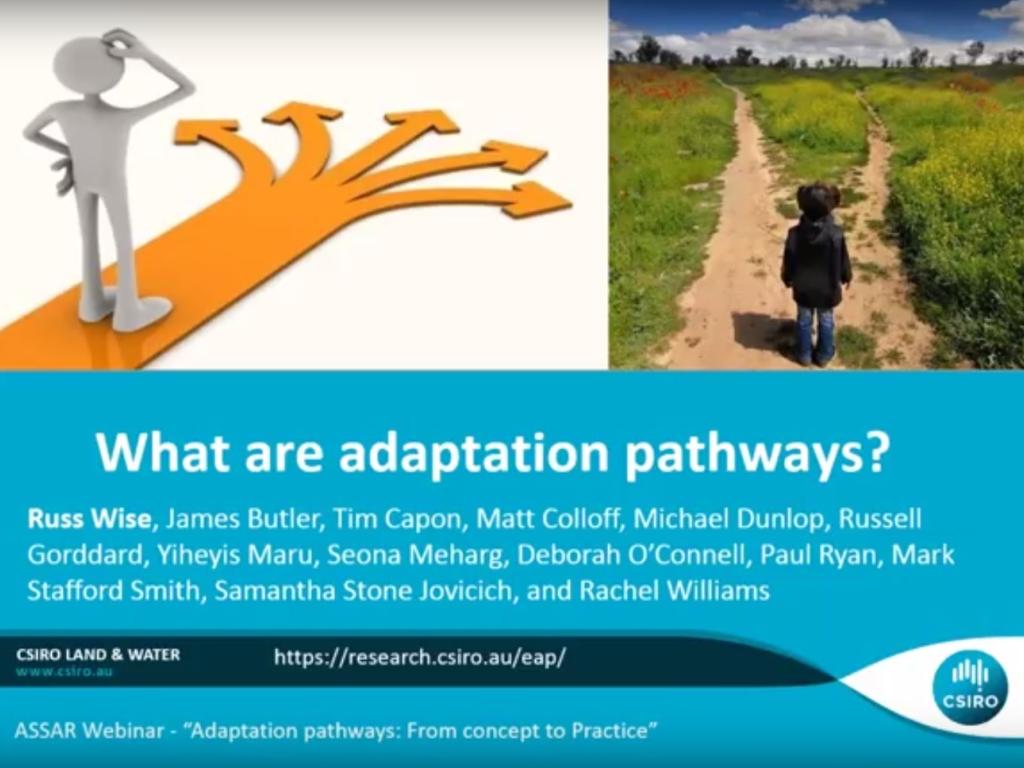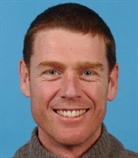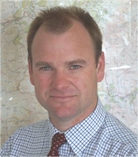Webinar: Adaptation Pathways – From Concept to Practice

ASSAR, in collaboration with CSIRO (Commonwealth Scientific and Industrial Research Organisation), organised a webinar on Adaptation Pathways on Friday 14 October 2016. A two-hour webinar was hosted by Professor Mark New from the African Climate and Development Initiative at the University of Cape Town (UCT).
The webinar discussed how climate change can be mainstreamed into decision-making. This process is complicated by the uncertainties in climate change projections and impacts. There is also a necessity for cooperation between public and private actors across. In addition, other drivers such as population growth, increasing economic volatility and modernisation interact with climate change to generate unexpected outcomes and shocks.
During the webinar, Dr Russell Wise from CSIRO gave an insightful presentation on what are adaptation pathways. Followed by his colleague, Dr James Butler’s presentation gave examples on how adaptation pathways are being used in practice. Dr Sumetee Pahwa Gajjar from the Indian Institute for Human Settlements (IIHS), discussed the definition of pathways in development with examples from India. IIHS and UCT are two of the five organisations that lead the ASSAR project.
Download the presentations below:
Watch the webinar below!
SPEAKERS
|

|
Dr. Russell WiseDr Russell Wise is a sustainability economist passionate about working with people to help understand the challenges caused by rapid technological and environmental change and economic development and to develop approaches that enable learning and decision making under uncertainty. Core areas of Russ’s research include: Further developing economic theory and analytical approaches to help structure adaptation problems and inform the evaluation of trade-offs in resource allocations under uncertainty; exploring how concepts such as adaptation pathways can be used to build shared understanding of complex problems and generate responses over time; and developing ways to support individuals and agencies learn and adapt through 'smart failures' that build confidence and capacity to make decisions under risk and uncertainty. Photo and text: CSIRO website |

|
Dr. James ButlerDr. James Butler is a sustainability scientist with a background in agricultural economics, terrestrial, freshwater and marine ecology gained in southern Africa, Europe and Australia. He joined CSIRO in 2006, and is based in Brisbane, where he leads the Livelihoods and Adaptive Development Team. His research analyses complex development problems in the Asia-Pacific region, with a focus on trans-boundary issues linking northern Australia, Indonesia and Papua New Guinea. He applies concepts of social-ecological systems, resilience, transformation and well-being to explore alternative livelihood development pathways and trade-offs through participatory action research. Photo and text: CSIRO website |

|
Dr. Sumetee Pahwa GajjarAt IIHS, Dr Pahwa conducts research on vulnerability as it is experienced in rural, urban and peri-urban areas in India. Sumetee is interested in translating research on urban sustainability into practice and policy. Her doctoral thesis examined business decisions aimed at corporate environmental sustainability, including reduced carbon emissions. Sumetee’s current engagement on the CARIAA research programme allows her to delve into dynamic rural and urban connections in semi-arid regions, in the context of a changing climate. Photo and text: IIHS website |
The webinar is part of the Global Climate Change Week, held from 10 â 16 October 2016.
| CSIRO (Commonwealth Scientific and Industrial Research Organisation) is Australia’s national science agency. It covers multiple areas of inquiry, from energy to agriculture to health and biosecurity. In CSIRO Land and Water, we focus on sustainable development and management of natural resources. The Climate Risk and Resilience Group in CSIRO Land and Water carries out integrative science to support stakeholders’ decisionmaking about future development pathways. Our work is carried out primarily in Australia, the Pacific and Southeast Asia. For more information, visit www.csiro.au |